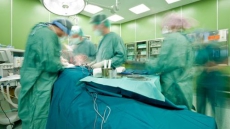Producing tissues and organs via 3D printing has the potential to address the shortage of organ donations in near future, scientists hope.
Biofabricated organs could even someday be made with a patient's own cells, lowering the risk of rejection, said Yong Huang from University of Florida.
“There are a few different biofabricating methods, but inkjet printing has emerged as a frontrunner. It has been used to print live cells, from hamster ovary cells to human fibroblasts, which are a common type of cell in the body,” researchers reported.
Huang and his team tested bioinks with different concentrations of mouse fibroblasts plus a hydrogel made out of sodium alginate.
They discovered, among other findings, that adding more cells in the material reduces both the droplet size and the rate at which it gets dispensed.
“The new results will help scientists move forward with this promising technology,” Huang contended in a paper published in the ACS journal Langmuir.





